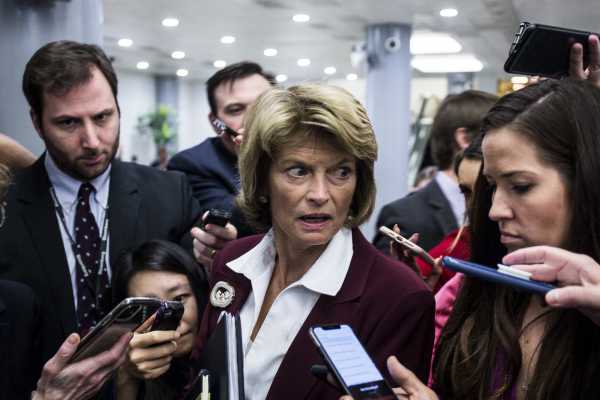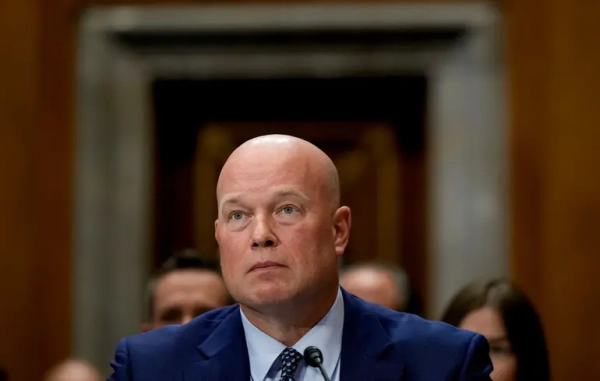
For the first time during this impeachment trial, senators will have the opportunity to ask direct questions to both the House impeachment managers and Trump’s defense counsel.
Across eight hours on Wednesday, and another eight hours on Thursday, Chief Justice John Roberts will read written questions from lawmakers, alternating between inquiries from Republicans and Democrats. Each question will be signed by the senator asking it, and lawmakers can submit questions as a group, too, if several wind up having the same one. (At President Bill Clinton’s trial, Sens. Susan Collins (R-ME) and Russ Feingold (D-WI) were the only duo to put forth a bipartisan question.)
This marks a new phase of the impeachment trial, and a chance for senators to actively interact with the prosecution and defense (in writing, at least), after serving solely as observers up until this point. It provides an opportunity for lawmakers to explicitly press members of both sides on gaps in their respective cases, including the implications of revelations from a forthcoming book by former National Security Adviser John Bolton that were documented in a New York Times report this weekend.
Questions will be strategically culled by the respective Republican and Democratic leaders, and since each senator’s name will be tied to each question, the ones that are selected will likely offer a glimpse into what swing members are curious about — as well as how party leaders hope to shape sentiment ahead of a final Democratic push to call new witnesses.
“During the question period of the Clinton trial, senators were thoughtful and brief with their questions, and the managers and counsel were succinct in their answers. I hope we can follow both of those examples during this time,” Majority Leader Mitch McConnell said on Tuesday.
Lawmakers have signaled there is a spectrum of subjects they’d like to probe further when it comes to the cases that have been presented by both the prosecution and defense regarding Trump’s conditioning of Ukraine military aid on the announcement of political investigations.
According to the New York Times, subjects that could emerge include the role of Trump’s personal attorney Rudy Giuliani in advocating for the investigations, ongoing Republican concerns about Hunter Biden’s position on the board of Burisma, and the constitutional threshold used by Trump’s defense to measure an impeachable offense.
“Members have lots of questions, we’re not censoring anybody,” Senate Minority Leader Chuck Schumer told reporters. “I’m sure some of the questions will be in that direction,” he added when asked if Bolton’s recent revelations were expected come up.
This question-and-answer period comes right before a pivotal vote on considering more evidence, including witness testimony, that’s expected to take place on Friday. It’s still unclear whether there are four Republicans who will join with Democrats to vote in favor of witnesses, and the responses to these questions could ultimately play a role in influencing lawmaker opinion.
As the Wall Street Journal reported Tuesday, McConnell had told the Republican conference that he did not yet have the votes to definitively block more witness testimony.
During President Bill Clinton’s impeachment trial, answers from both sides were loosely restricted to five minutes each, a model Roberts has suggested should be followed this time as well. Lawmakers asked more than 100 questions at the time, and with 16 hours available for questions, they could get through just as many this time around.
Sourse: vox.com






